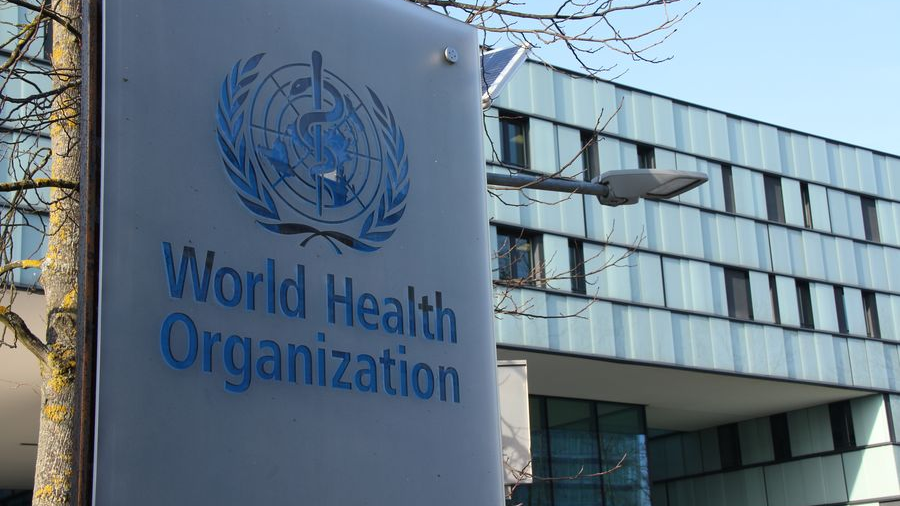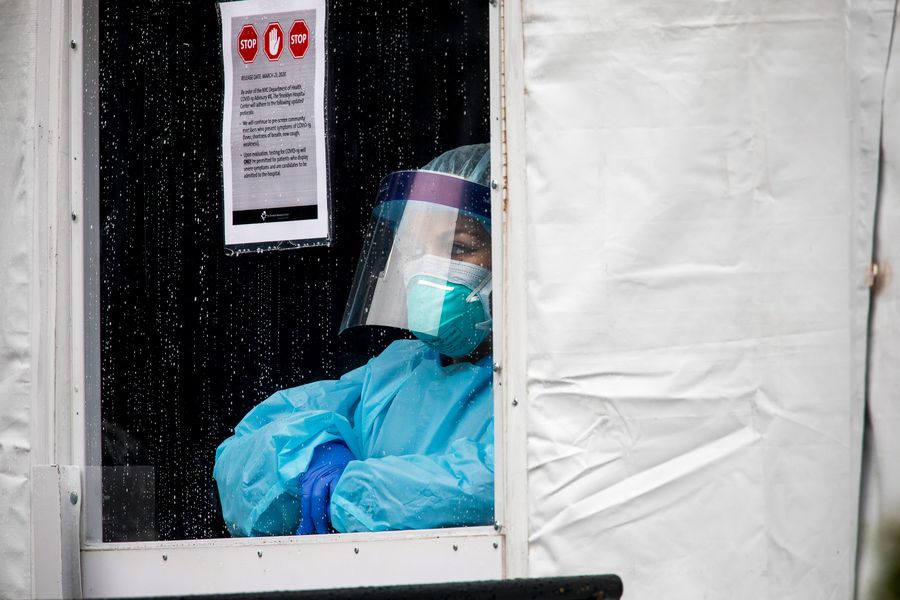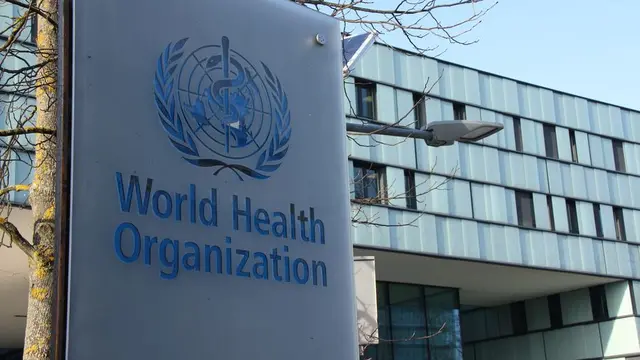
An exterior view of the headquarters of the World Health Organization in Geneva, Switzerland, January 22, 2020. /Xinhua
**Editor's note: **Hamzah Rifaat Hussain is a former visiting fellow at the Stimson Center in Washington, and currently serves as assistant researcher at the Islamabad Policy Research Institute (IPRI) in Pakistan. The article reflects the author's opinions, and not necessarily the views of CGTN.
In a major setback to the Trump administration's pursuit of a WHO revamp on American terms, both Germany and France, two of Europe's most influential players as well as allies of the United States, have withdrawn from the scheduled talks scheduled for September.
Both countries have cited frustration over the United States leading the negotiation process as justification for withdrawal, jeopardizing Washington's goal of ensuring maximum support for a sweeping overhaul of the world health body.
This withdrawal has exposed the U.S. on multiple fronts which bodes ill for the Trump administration as the November 2020 elections approach.
Firstly, the United States, which holds the rotating chair of the G7, has witnessed this abandonment over a sensitive issue such as health care reforms during the COVID-19 pandemic, when global leadership and collective action are required instead of the blind pursuit of unilateralism.
There is an understanding in the European bloc that global institutions such as the WHO need to be complimented and supported while striving towards curbing the pandemic but it has been consistently sidelined by the United States under the current administration. The call for WHO reforms in light of the body's centrality towards issuing health guidelines and its appreciation of states for taking measures to curb the pandemic in the current environment has been rebuffed by both Berlin and Paris.
Secondly, this withdrawal also lays bare how they have been irked by the United States' perceived domineering role at the scheduled reform talks.
It is noteworthy that Germany and France have had reservations over the WHO and have called for reform solely on the basis of its functionality. A reform document is also being penned as per the Italian health ministry, with Italy siding with both Germany and France in viewing the U.S. narrative on reforming the UN agency as being too critical. Both countries have objected to the U.S. leadership in the scheduled G7 Summit in Washington D.C. on the principle that receiving guidelines on reforming an institution from a country that has left it is considered unacceptable. This principled stance clearly shows that the Trump narrative on reforming the WHO is not gaining resonance even among its closest allies, despite the fact that the reform process itself is considered to be important for many of them.

A healthcare worker looks out of the window of a tent in front of Brooklyn Hospital Center in New York, April 24, 2020. /Xinhua
This withdrawal comes in the wake of nearly 20 teleconferences which have taken place between the health ministers of the G7 member states with dozens of meetings between diplomats and other officials also held. Despite all the prior deliberations, Trump leadership's role in reforming the WHO continues to remain under question by all the stakeholders involved.
This blow also comes at a time when further procedural lacunas must be filled by the United States with the G7 first striking a deal which is to be followed up by talks with the G20 which includes other major global powers who may be at odds with the American narrative. Further talks would then take place at the United Nations where China and Russia must also agree to major changes made alongside other sovereign states.
Hence, for the United States to lose its allies at such a critical juncture hints at how such a blatant push for WHO reforms without consultation or cognizance of nuances identified by states such as Germany and France can be detrimental to its own image as a global power.
European states have criticized and even castigated the WHO on several occasions, with fingers pointed at the organization's chief Tedros Adhanom Ghebreyesus, accusing him of politicizing the organization to the detriment of universal health coverage.
However, the central locus of European criticism is to ensure that the body becomes stronger, efficacious, impartial and well-funded which deals directly with its functionality as an organization and nothing more. Not once has any European state including Germany and France endorsed the withdrawal of funds from the organization as the United States has.
There is also an understanding that Donald Trump's harsh rebuke of the WHO is linked with being reelected in November, where this ongoing criticism is a diversionary tactic for his domestic mishandling of the COVID-19 crisis.
Trump has downplayed the severity of the pandemic on numerous occasions as well as the mortality rates from the virus despite the fact that the United States has more deaths per person from COVID-19 than any other nation across the globe.
The chances of reelection relate to peddling the narrative of castigating the WHO, which is more about appealing to domestic constituencies rather than calling for genuine overhaul as most European states have pushed for. Fractured ties with Germany on the decision to withdraw thousands of U.S. troops also underline America's inability to diplomatically cater to the foreign policy priorities of its allies under Donald Trump.
Therefore, with the scheduled WHO talks in September clouded with uncertainty, the recent withdrawal of Germany and France has dealt a major blow to Trump's push for a common "roadmap" on reforming the organization. The withdrawal shows that states which believe in the importance of global health, adequate funding and efficiency of the WHO are committed towards multilateralism as well as treating global health bodies as part of the solution instead of the problem.
(If you want to contribute and have specific expertise, please contact us at [email protected].)
 简体中文
简体中文

